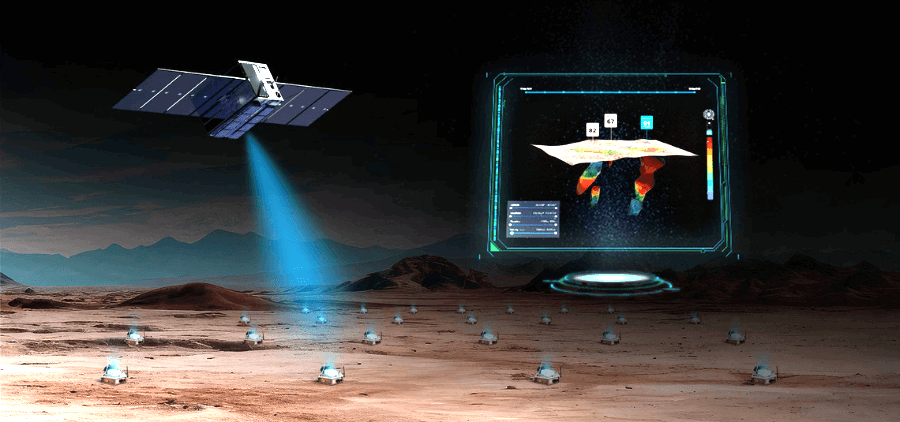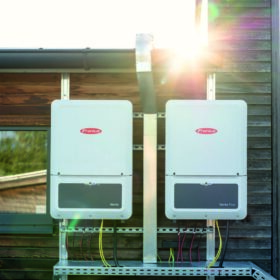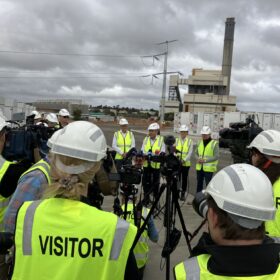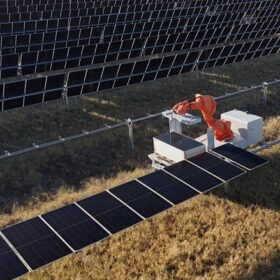South Australian-headquartered space company Fleet Space Technologies has announced a $150 million funding round that will be used to expand the capabilities of its global exploration platform, ExoSphere, to accelerate the discovery of critical minerals needed for Earth’s clean energy future.
By integrating Fleet Space’s satellites in low earth orbit (LEO), smart seismic sensors, and AI into an end-to-end solution, ExoSphere technology streamlines the acquisition, processing, and integration of exploration datasets.
This has the potential to provide the global mining industry with high-quality targeting insights faster than ever before while minimising environmental impact.
Fleet Space Chief Executive Officer and Co-founder Flavia Tata Nardini said in the two versions of the future, one is where the latest advances in space, AI, and big data bend towards building a clean energy future.
“Another is where we risk net-zero targets falling out of reach as the rate of new discoveries of energy transition minerals continues to decline,” Nardini said.
“With ExoSphere, we have combined these technologies into an end-to-end platform that seamlessly integrates with and compliments modern mining operations – making the frontier of exploration technology accessible to the global mining industry within a single workflow.”
Nardini added it is fundamental step to unlock humanity’s potential for making desposit discoveries with less environmental impact.

Image: Fleet Space
The most recent funding for Fleet Space has come from Teachers’ Venture Growth (TVG) and joined by existing investors Blackbird Ventures, Hostplus, Horizons Ventures, Artesian Venture Partners, and Alumni Ventures.
Blackbird Partner Niki Scevak said the company is proud to continue its investment Fleet Space.
“Quite simply, the discovery of critical minerals must exponentially increase if we are to electrify our society by 2050 and breakthroughs, like ExoSphere, are needed to make it happen,” he said.
Founded by former propulsion engineer at the European Space Agency (ESA), Flavia Tata Nardini, and aerospace entrepreneur, Matt Pearson, Fleet Space was created to harness the capabilities of space exploration technologies for a new wave of solutions that can accelerate decarbonisation and the global energy transition.
In the past year, it has deployed ExoSphere to accelerate exploration in some of the most prospective areas on Earth with resources giants like Rio Tinto and Barrick Gold, while also delivered real-time 3D imaging survey in Australia’s Macquarie Arc.
This content is protected by copyright and may not be reused. If you want to cooperate with us and would like to reuse some of our content, please contact: editors@pv-magazine.com.








4 comments
By submitting this form you agree to pv magazine using your data for the purposes of publishing your comment.
Your personal data will only be disclosed or otherwise transmitted to third parties for the purposes of spam filtering or if this is necessary for technical maintenance of the website. Any other transfer to third parties will not take place unless this is justified on the basis of applicable data protection regulations or if pv magazine is legally obliged to do so.
You may revoke this consent at any time with effect for the future, in which case your personal data will be deleted immediately. Otherwise, your data will be deleted if pv magazine has processed your request or the purpose of data storage is fulfilled.
Further information on data privacy can be found in our Data Protection Policy.